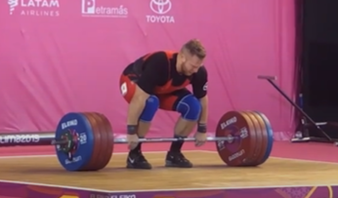Where Protein Shakes Shine (and why they're popular)
So, if they're not a "must," why are they so popular and useful for many people?
Convenience is King: This is their biggest advantage. After a workout, or when you're on the go and don't have time for a full meal, a quick shake is incredibly easy to prepare and consume.
It helps you get protein into your system without much effort, which can be crucial for hitting your daily protein targets. Hitting High Protein Targets: For some individuals, especially serious athletes, bodybuilders, or those in a significant caloric deficit trying to preserve muscle, their protein requirements can be quite high (e.g., 1.6-2.2 grams per kilogram of body weight). Eating that much protein solely from whole foods can sometimes be challenging or lead to feeling overly full. Shakes provide a concentrated source of protein without a lot of extra calories, fat, or carbs, making it easier to meet those elevated needs.
Post-Workout Rapid Delivery (but not strictly necessary): The idea of an "anabolic window" where you absolutely must consume protein within minutes after a workout used to be highly emphasized. While getting protein in relatively soon after exercise is beneficial, research suggests that this window is much wider (several hours) than previously thought. A shake can be quick, but a meal within an hour or two is perfectly fine.
Dietary Restrictions: For those with specific dietary needs (e.g., lactose intolerance, veganism), protein powders (like plant-based options) can offer a simple way to ensure adequate protein intake if whole food options are limited or less appealing.
So, Can They Be Avoided?
Absolutely, yes! If you're consistently consuming enough protein from a variety of whole food sources throughout your day, you do not need a protein shake. Focus on a balanced diet rich in lean proteins, fruits, vegetables, whole grains, and healthy fats.
Think of protein shakes as a supplement to your diet, not a replacement for real food. They are a tool to help you reach your goals, not a mandatory component of muscle growth. If you find them convenient, enjoy them, and they help you hit your daily protein goals, then great! If you prefer to get all your protein from food, that's equally effective.
References (General Scientific Consensus):
International Society of Sports Nutrition (ISSN) Position Stand: They consistently state that total daily protein intake is more important than the timing of protein. While post-exercise protein is beneficial, the "anabolic window" is broader than often portrayed.
Schoenfeld, B. J., Aragon, A. A., & Krieger, J. W. (2013). The effect of protein timing on muscle strength and hypertrophy: a meta-analysis. Journal of the International Society of Sports Nutrition, 10(1), 53.
American College of Sports Medicine (ACSM) Guidelines: Emphasize meeting overall protein needs through diet.
Thomas, D. T., Erdman, K. A., & Burke, L. M. (2016). Position of the Academy of Nutrition and Dietetics, Dietitians of Canada, and the American College of Sports Medicine: Nutrition and Athletic Performance. Journal of the Academy of Nutrition and Dietetics, 116(3), 501-528.
Various sports nutrition textbooks and research papers: Universally agree that whole foods are the foundation of a healthy diet, and supplements (like protein powder) are supplementary, not fundamental.


Comments
Post a Comment